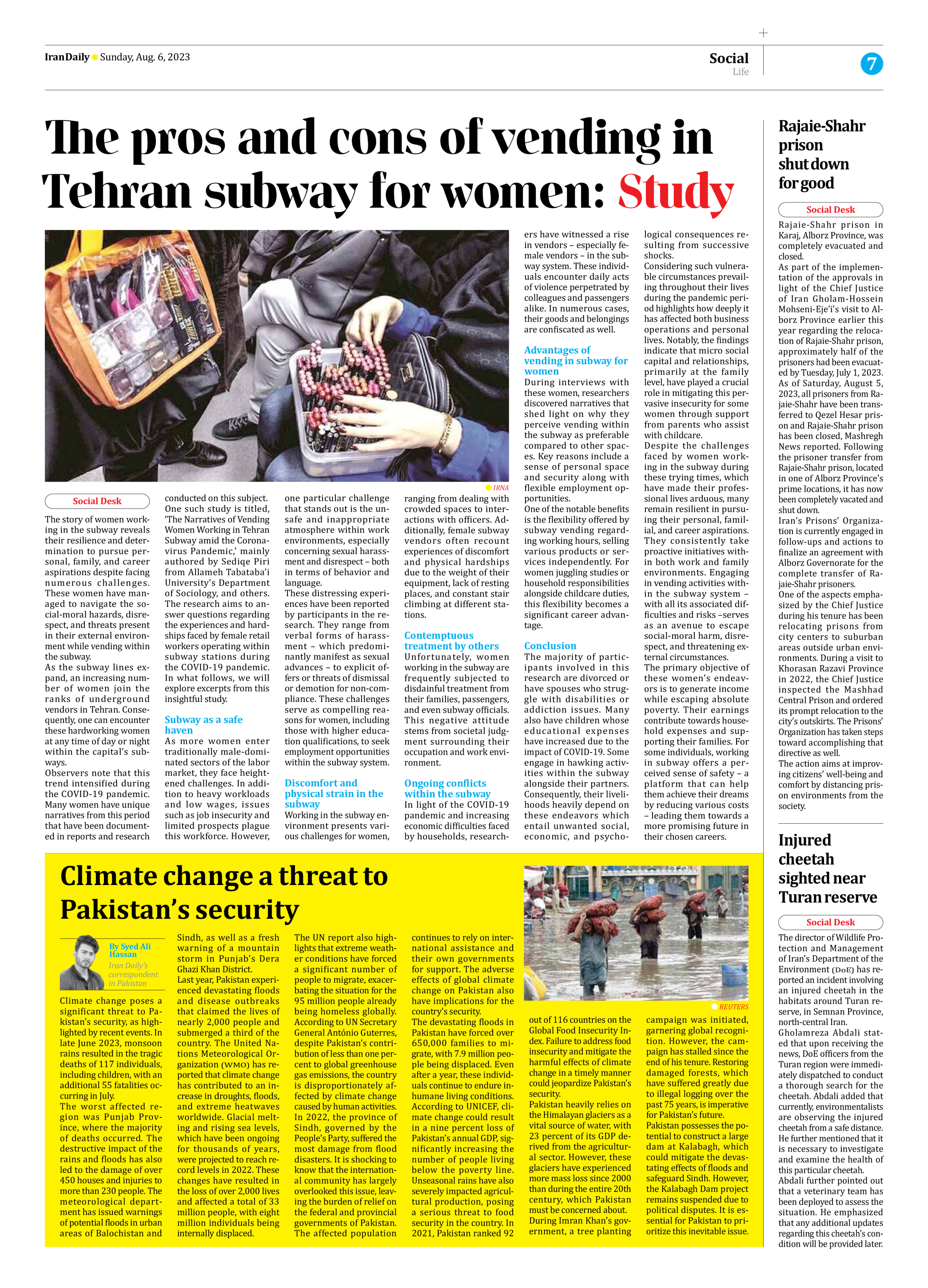
The pros and cons of vending in Tehran subway for women: Study
The story of women working in the subway reveals their resilience and determination to pursue personal, family, and career aspirations despite facing numerous challenges. These women have managed to navigate the social-moral hazards, disrespect, and threats present in their external environment while vending within the subway.
As the subway lines expand, an increasing number of women join the ranks of underground vendors in Tehran. Consequently, one can encounter these hardworking women at any time of day or night within the capital’s subways.
Observers note that this trend intensified during the COVID-19 pandemic. Many women have unique narratives from this period that have been documented in reports and research conducted on this subject.
One such study is titled, ‘The Narratives of Vending Women Working in Tehran Subway amid the Coronavirus Pandemic,’ mainly authored by Sediqe Piri from Allameh Tabataba’i University’s Department of Sociology, and others. The research aims to answer questions regarding the experiences and hardships faced by female retail workers operating within subway stations during the COVID-19 pandemic. In what follows, we will explore excerpts from this insightful study.
Subway as a safe haven
As more women enter traditionally male-dominated sectors of the labor market, they face heightened challenges. In addition to heavy workloads and low wages, issues such as job insecurity and limited prospects plague this workforce. However, one particular challenge that stands out is the unsafe and inappropriate atmosphere within work environments, especially concerning sexual harassment and disrespect – both in terms of behavior and language.
These distressing experiences have been reported by participants in the research. They range from verbal forms of harassment – which predominantly manifest as sexual advances – to explicit offers or threats of dismissal or demotion for non-compliance. These challenges serve as compelling reasons for women, including those with higher education qualifications, to seek employment opportunities within the subway system.
Discomfort and physical strain in the subway
Working in the subway environment presents various challenges for women, ranging from dealing with crowded spaces to interactions with officers. Additionally, female subway vendors often recount experiences of discomfort and physical hardships due to the weight of their equipment, lack of resting places, and constant stair climbing at different stations.
Contemptuous treatment by others
Unfortunately, women working in the subway are frequently subjected to disdainful treatment from their families, passengers, and even subway officials. This negative attitude stems from societal judgment surrounding their occupation and work environment.
Ongoing conflicts within the subway
In light of the COVID-19 pandemic and increasing economic difficulties faced by households, researchers have witnessed a rise in vendors – especially female vendors – in the subway system. These individuals encounter daily acts of violence perpetrated by colleagues and passengers alike. In numerous cases, their goods and belongings are confiscated as well.
Advantages of vending in subway for women
During interviews with these women, researchers discovered narratives that shed light on why they perceive vending within the subway as preferable compared to other spaces. Key reasons include a sense of personal space and security along with flexible employment opportunities.
One of the notable benefits is the flexibility offered by subway vending regarding working hours, selling various products or services independently. For women juggling studies or household responsibilities alongside childcare duties, this flexibility becomes a significant career advantage.
Conclusion
The majority of participants involved in this research are divorced or have spouses who struggle with disabilities or addiction issues. Many also have children whose educational expenses have increased due to the impact of COVID-19. Some engage in hawking activities within the subway alongside their partners. Consequently, their livelihoods heavily depend on these endeavors which entail unwanted social, economic, and psychological consequences resulting from successive shocks.
Considering such vulnerable circumstances prevailing throughout their lives during the pandemic period highlights how deeply it has affected both business operations and personal lives. Notably, the findings indicate that micro social capital and relationships, primarily at the family level, have played a crucial role in mitigating this pervasive insecurity for some women through support from parents who assist with childcare.
Despite the challenges faced by women working in the subway during these trying times, which have made their professional lives arduous, many remain resilient in pursuing their personal, familial, and career aspirations. They consistently take proactive initiatives within both work and family environments. Engaging in vending activities within the subway system – with all its associated difficulties and risks –serves as an avenue to escape social-moral harm, disrespect, and threatening external circumstances.
The primary objective of these women’s endeavors is to generate income while escaping absolute poverty. Their earnings contribute towards household expenses and supporting their families. For some individuals, working in subway offers a perceived sense of safety – a platform that can help them achieve their dreams by reducing various costs – leading them towards a more promising future in their chosen careers.







